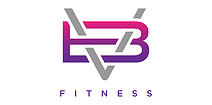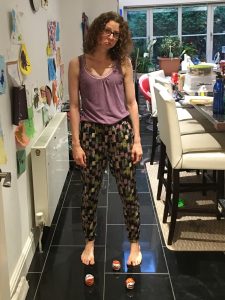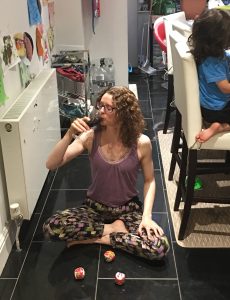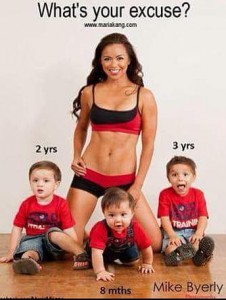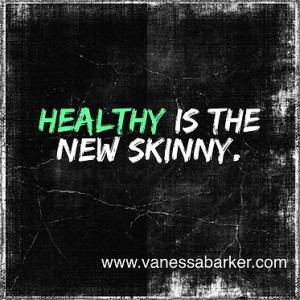I’ve written before about returning to exercise post C-section, but I didn’t touch on one important area of C-section recovery: the scar. Because I think this deserves a blog of its own.
I meet a lot of C-section mamas, and issues such as poor sensation/numbness, ongoing pain and a feeling of tightness in the area are common. Which is hardly surprising: even from a small cut I’ve felt tightness in the area as it’s healed.
But this rarely gets talked about- why not?! There’s been trauma to muscles, nerves, blood vessels, right in the hugely important area of the abdomen no less. Your core muscles (we want those functioning well, right?) and a number of organs are potentially affected by this. And massage can make a huge difference to the healing process.
So why aren’t all C-section mamas told to massage their scars as part of their recovery?
Advice is all about the appearance of the scar, such as looking for signs of infection, yet the effects of your C-section can go beyond what you feel in the scar itself.
This may sound severe, but remember the scar is far deeper than what we can see: if you think about how deep the incisions are, and how scar tissue is formed, this isn’t surprising.
After surgery scar tissue forms as part of the healing process, but the fibres go in all different directions, can feel tighter, and it can adhere to other tissues, such as skin, muscles and even organs. This is when problems can occur.
You can view a video here of what these adhesions look like.
So what issues can arise?
Low Back and Pelvic Pain
Adhesions in this area can affect the sacrum, which is where your spine meets your pelvis, so anything that interferes with its movement or function can have a knock on affect to your low back too.
Frequent urination
I think this one is self-explanatory! You should be urinating every 2-5 hours, but many women find themselves having to dash to the toilet far more often. Again adhesions in the area can affect the bladder’s expansion and sensitivity, interfering with normal function.
Pain with intercourse
This comes back to adhesions around the organs again: if it limits their movement, then they can’t get out of the way during intercourse, which can be very painful.
Obviously not every woman who’s had a C-section will experience these symptoms. But it’s worth knowing about because sometimes it can be years before any issues occur, as adhesions continue to form. And while massage won’t prevent all of this, it can definitely reduce the risk and severity of symptoms should they occur. So you’ve got nothing to lose from trying it!
So how do I massage my scar?
When to start:
Ideally as soon as it’s fully healed to prevent the formation of deeper adhesions. But it’s never too late to start, even years later!
How often:
More regularly to start, when the tissues might not be moving very freely, but once they are it’s still a good idea to revisit it once every so often, in case it’s getting tight again.
If you have difficulties doing this or notice your tissues don’t seem to be responding to your efforts, then you should see a Women’s Health Physiotherapist for treatment.
How?
This is the best video I’ve seen of how to massage your scar, by Lynne Schulte at Intuitive Hands PT.
However there are also therapists who specialises in scar tissue massage. Emma Holly from ScarWork at Restore Therapy told me about a recent client and how scar massage helped her:
After a long labour she ended up with an emergency c-section. After a few months she started to try some exercise videos and found she had bladder weakness and sought out an amazing women’s health physiotherapist and has started a course of exercise to strengthen her pelvic floor.
Her c-section scar had left her with little feeling and a disconnect with the pelvic area. She came to me for treatment where I worked along the scar tissue, using ScarWork therapy to stimulate further healing. Deep stretches loosened some adhesions caused by surgery and using massage to release the pelvis and hips post pregnancy.
After one 45 minute session she walked out of the appointment and said “oh, my hips feel different” in the days that followed she noticed her feeling of the pelvic floor improved so she could be more aware when drawing up the muscles and is now finding her exercises from the physiotherapist and in restorative pilates much easier.”
In addition, if you are having any issues with pelvic pain, or that might be associated with adhesions to your organs (including bowel problems) many Women’s Health Physios are trained in visceral manipulation, so can assess you and work deeper than you might be comfortable doing yourself.
WH Physio Becky Aston explains how this can affect breathing patterns (read this blog for more on the breath and core strength) and result in pain elsewhere:
An amazing fact about the diapraghm (muscle below the lungs) is it moves up and down 20,000 times a day. We think of the ovaries, kidneys, liver, pancreas etc just existing in our pelvic and abdominal cavity but they move in a synchronised fashion with the diaphragm.
Now imagine that you have something restricting this movement i.e. adhesions from a scar. However small, they will limit this movement and other structures will have to accommodate. This can cause pain or dysfunction anywhere else in the body.
Releasing abdominal adhesions can relieve IBS symptoms, menstrual pain, back pain, help the pelvic floor muscle and deep core work more effectively and many more things.
Visceral release work is a gentle therapy with mobilises visceral and myofascial structures which can release those adhesions and allow the body to be synchronised again.
And finally…
A note on numbness and loss of sensation in scars, as this is what I most commonly get asked about.
Nerve damage can be permanent, but nerves do regenerate. The speed of this is slow though, about a mm a day (it depends a bit on the size of the nerve in question) so it can take months and even years to regain feeling. The same goes for feeling such as tingling or itchiness.
I find that the impact of a scar can reach far beyond its immediate area. Tight quad muscles (on the front of the thighs) for example can pull on the scar, so massage and release work here can be beneficial to the C-section mama. And any scar can have a huge impact on muscle function too.
If you’re interested in booking a postnatal massage with me to help with your recovery, and with your scar massage, you can find out more about what it involves here.
And if you’re one of the many women who finds the thought of touching your scar makes you feel ill, you’re not alone. The comments I received after first writing this blog prompted me to write a second about scar aversion. You can read it here.
